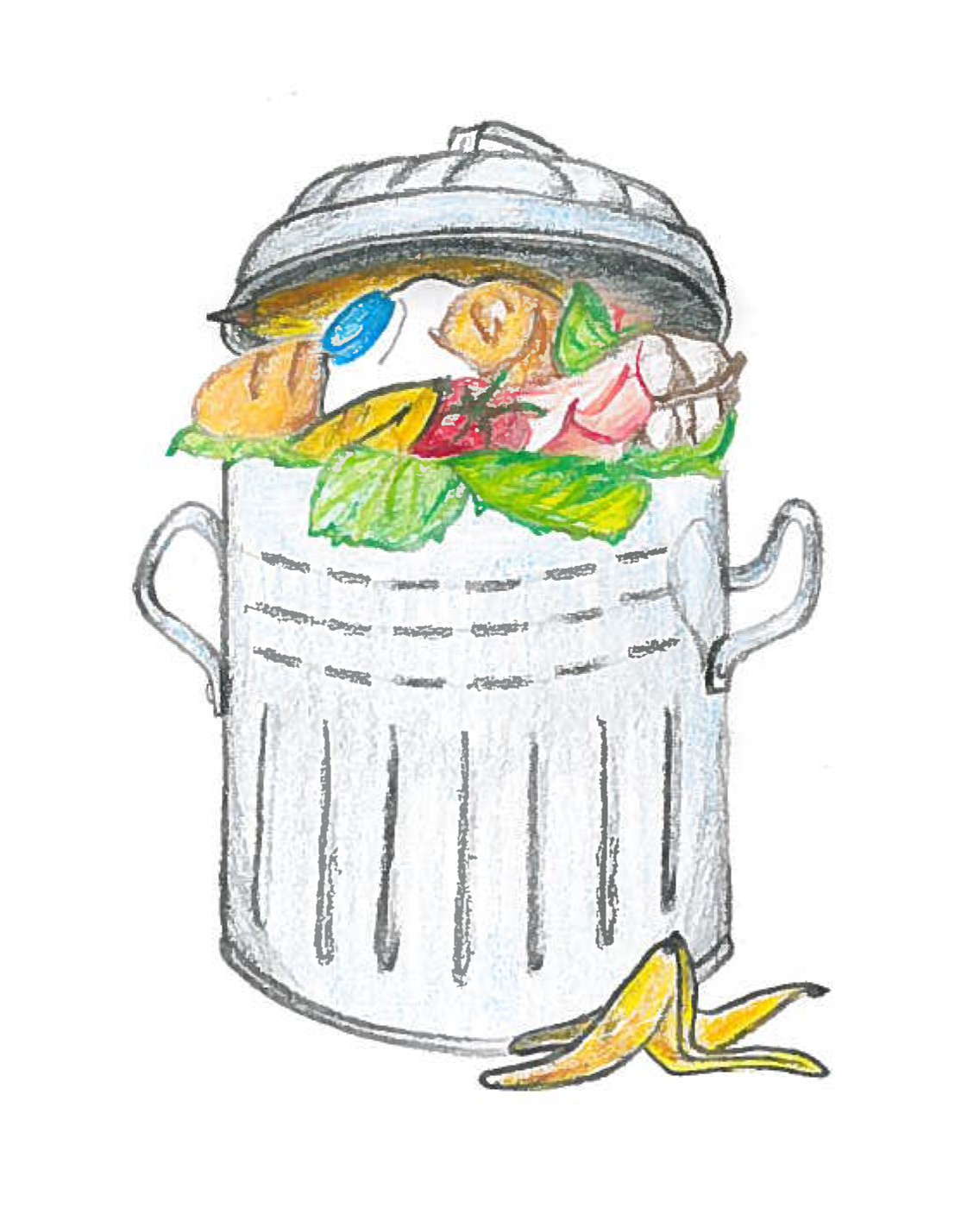Wasting food is often unavoidable, whether producing extra scraps from cooking or throwing out moldy and expired food. For many student-led food-based initiatives on campus, food waste is an ever-present issue that requires large-scale efforts to combat it.
Reducing food waste can begin with the early stages of production. According to Students’ Society of McGill University Vice-President (VP) Operations Sacha Magder, the Student Run Cafeteria (SRC) has been very successful at limiting food waste by cutting out food loss in their supply chain.
“[The SRC] started using a local producer who pre-chops the vegetables. [Normally,] we would have thrown out the ends, [but now] they can reuse the ends for fertilizer or for animals,” Magder said. “We’ve seen it make a difference on our bottom line. We’re wasting less food since the sales are higher. Everything is being used and sold, and the portion sizes are accurate for students.”
However, prioritizing environmental sustainability can often entail financial sacrifice, as eco-friendly food production strategies like pre-chopping vegetables tend to come with higher costs. It has been harder to improve revenue at the SRC for this reason; however, even so, the cafeteria strives to serve cheap food despite using potentially more expensive locally-sourced produce, all the while maintaining sustainable projects and paying fair wages.
“Margins are lower, so there is a higher cost of food,” Magder explained. “We are willing to sacrifice profit in order to run our operation in a sustainable and fair way. The SRC is working towards breaking even as it currently runs on a deficit.”
While the SRC is working to reduce food waste in the early stages of food production, other initiatives on campus still struggle with this. According to Monica Allaby, U2 Arts and a coordinator for the McGill Farmer’s Market, food waste is still a problem in their Community Supported Agriculture program (CSA), which works with Macdonald Student-run Ecological Gardens (MSEG). In the student-led CSA program, students pay for produce in advance from local farmers to fund their start-up costs during the winter, and, in exchange, they receive weekly baskets of produce during the summer harvest season. Over this past summer, however, many baskets were not picked up by those who had ordered them. As an alternative to throwing out these baskets, the Farmer’s Market donated this produce to a local restaurant. In addition, MSEG is looking to work with a local non-profit this fall to help reduce food waste.
“There were enough leftovers [from produce baskets] that they couldn’t be distributed among the volunteers,” Allaby said. “Luckily, the extra food was given to Robin des Bois, a non-profit restaurant in the Plateau. During the fall, McGill Farmer’s Market hopes to pair up with the Yellow Door, [located] in the [Milton-Parc Community], to help donate to their student food bank during the school year. Students can also contribute [to the Yellow Door] and donate their leftover food items.”
While eliminating the amount of food wasted in the pre- and post- stages of food production has proven effective for many campus groups, some find putting food waste back into the earth to be an equally feasible option. The Midnight Kitchen (MK)—a non-profit, student volunteer-run collective dedicated to providing accessible, affordable, and healthy meals outside of the mainstream capitalist food system—has also faced their fair share of issues with excess food after their daily soup kitchen. To assuage this, MK composts their leftover food through an external service, according to Anastasia Dudley, U3 Arts and staff member at MK .
“Given that most of our food comes to us at or past its expiry date, we throw a ton of food out for being moldy and inedible. We often fill a compost bin a day,” Dudley said. “We use Compost Montreal. We pay for the service out of our fee and have a relationship with them independent of McGill.”
While many on-campus initiatives work to reduce their food waste on a larger scale, the members of the student population may also address their own levels of food waste in order to contribute to a culture of sustainability on campus. According to Magder, food waste should be addressed through larger societal changes.
“Food waste needs to be tackled through an educational and [cultural] change,” Magder said. “But it’s hard in a community where the number of people are changing every year to instill [food waste] standards across campus. Each year, we lose 25 per cent of students and we have to re-educate 25 per cent again.”
While it is clear that many groups at McGill work to reduce food waste, students’ roles in lowering their personal food waste doesn’t need to start on campus. For Magder, reducing food waste in his personal life was a matter of learning to plan his grocery shopping.
“After my first year at McGill, I learned that planning was key as well as the importance of portioning correctly, buying the right amount of groceries, planning meals carefully, and composting,” Magder said.
What campus initiatives such as the SRC, MK, and MSEG all have in common are students with values like Magder’s. Limiting one’s carbon footprint more often than not entails partaking in larger-scale campus food systems. The environmental principles upon which students operate in their everyday lives are just as important for making change in public settings, like school or at work.








